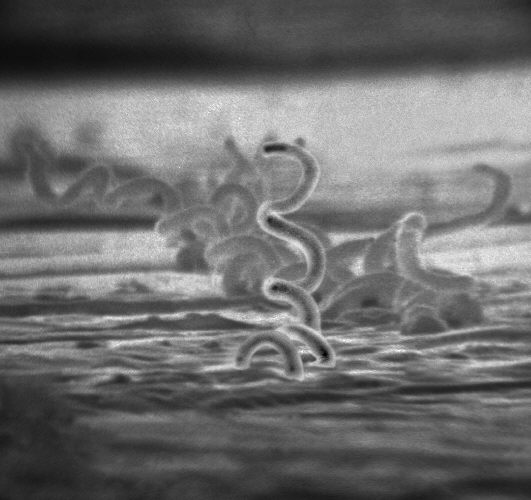Health Officials Warn Of Syphilis Outbreak In NH

Concord, NH – New Hampshire state officials announced that the state is experiencing an outbreak of syphilis. According to state health officials the 42 cases reported in New Hampshire for 2017 is about double that of a typical year. That is an increase compared with the past 5 years, when an average of 20 cases were reported during those months.
Between 2012 and 2016, there were on average approximately 80 total cases per year of the disease reported in New Hampshire, with 2016 having the highest number of 104 cases reported for the entire year.
The outbreak in New Hampshire is consistent with national trends and is being seen mainly in men under age 40 and in men who have sex with men (MSM).
“Syphilis is a sexually transmitted disease that can have serious health consequences if left untreated, but it can be cured when a person is diagnosed and given the right antibiotics,” said State Epidemiologist Dr. Benjamin Chan. “Syphilis was close to being eliminated in the United States back in 2000, but over the last decade it has been making a resurgence, and unfortunately, New Hampshire is not immune to the impact of increasing STDs.”
Dr. Sohaib Siddiqui, hospitalist at Memorial Hospital said “As far as I know we have not had any cases in Carroll County as of yet, in terms of in the hospital or our primary.” According to State Health Officials approximately 60% of cases have been in Hillsborough and Rockingham Counties.
When asked if he believes the rise in the disease is related to the on going Opiate Epidemic Dr. Siddiqui said “I don’t think there is a causal relationship as far as we know at this time.”
Syphilis is caused by infection with the Treponema pallidum bacterium, and it can be transmitted through sexual contact. Syphilis is divided into stages (primary, secondary, latent, and tertiary), and there are different signs and symptoms associated with each stage. According to Dr. Siddiqui the treatment for syphilis is simple antibiotics, such as penicillin.
Syphilis can infect anybody who is sexually active. If a pregnant woman is infected, she can also pass the infection on to her unborn baby, resulting in congenital syphilis, a severe, disabling, and often life-threatening infection seen in infants. Fortunately, New Hampshire has not identified a case of congenital syphilis since 2013.
The New Hampshire Department of Health and Human Services, Division of Public Health Services (DPHS) recommends that everyone who is sexually active talk with their healthcare provider about getting tested for STDs, such as syphilis, HIV, gonorrhea, and chlamydia, and that individuals with sexual risk factors should be tested for syphilis, including MSM and anybody who has been diagnosed with another sexually transmitted disease. Pregnant women also need to be routinely tested for syphilis whether or not they have symptoms.
According to the Centers for Disease Control and Prevention (CDC), the rate of primary and secondary syphilis has increased almost every year since 2000–2001. In 2015, a total of 23,872 primary and secondary syphilis cases were reported nationally which represents a rate of about 8.0 cases per 100,000 population; this represents a 19.0% increase from 2014 and is the highest rate reported since 1994.
For more information on syphilis, visit the Centers for Disease Control and Prevention at www.cdc.gov/std/syphilis/.


